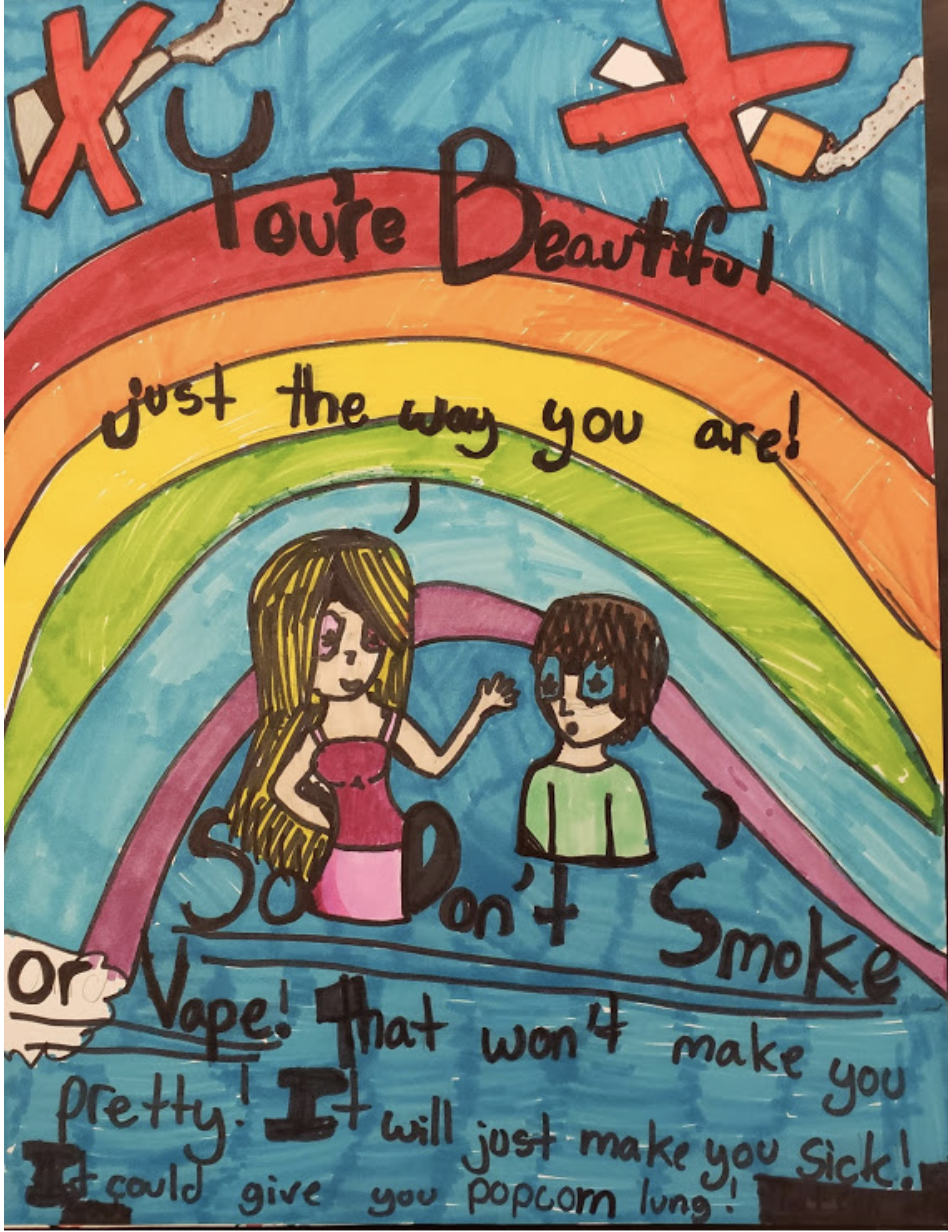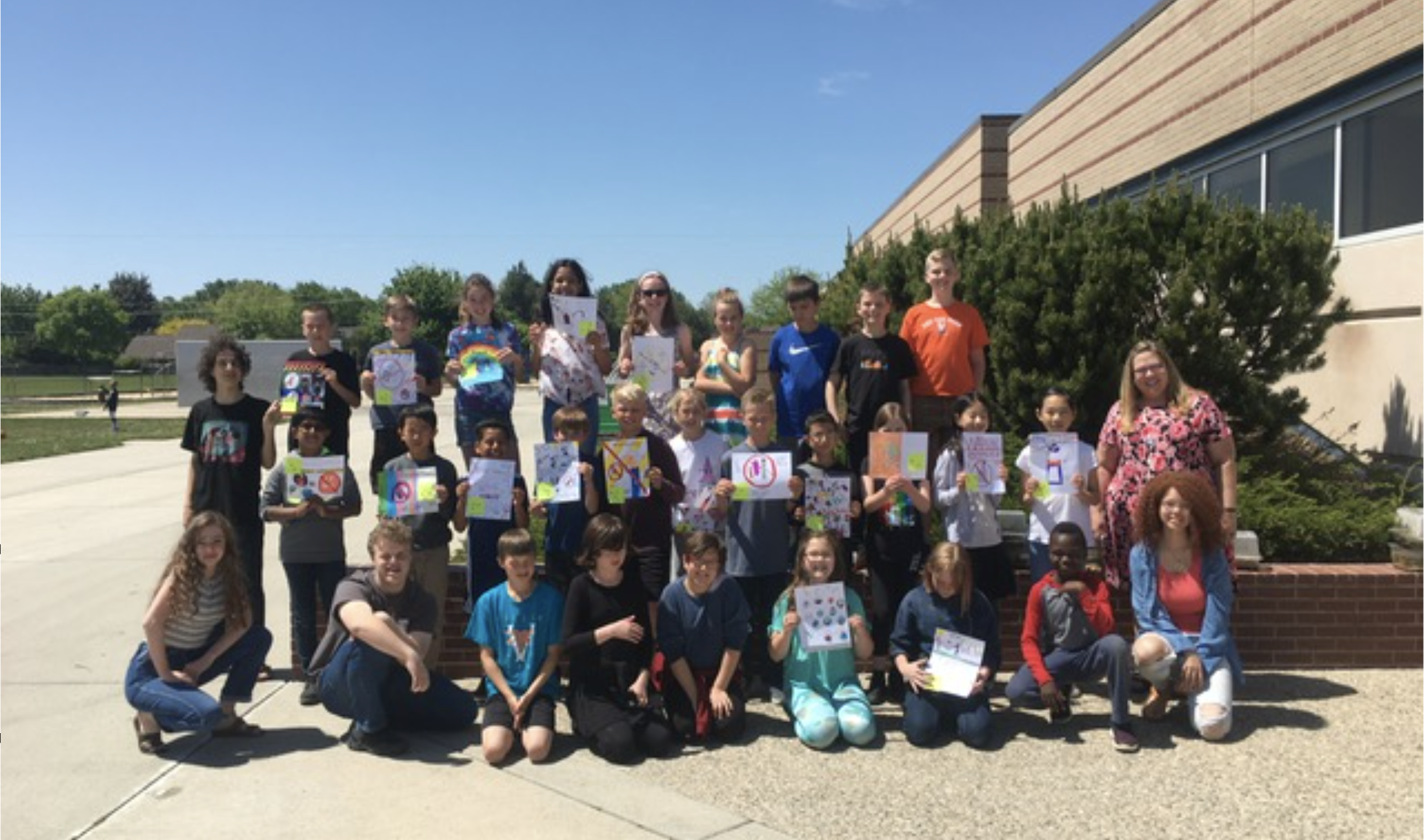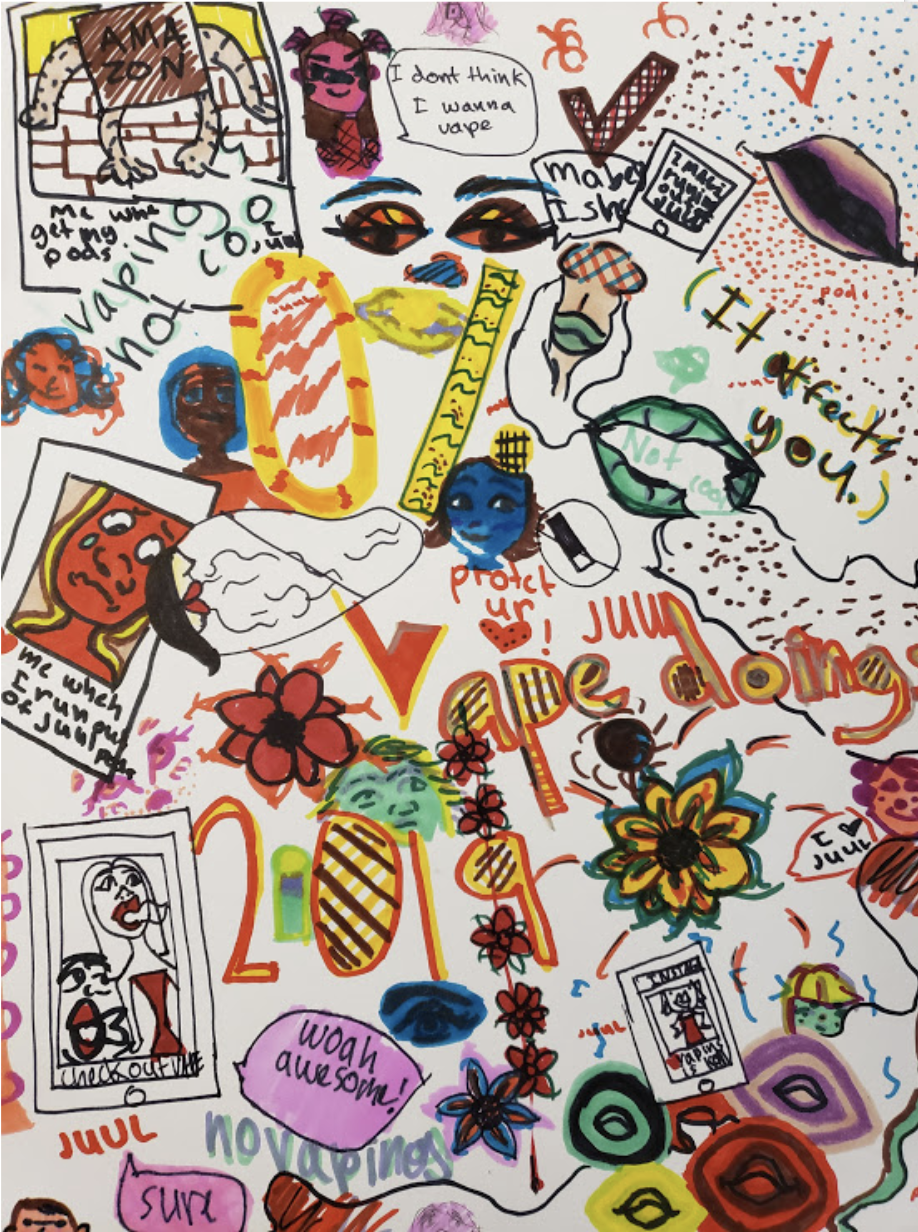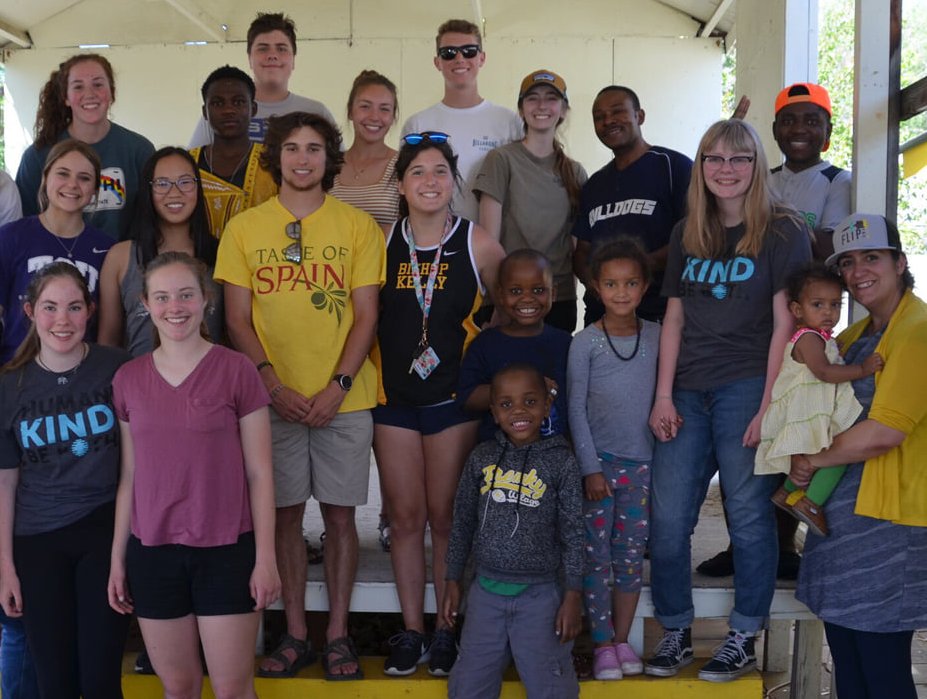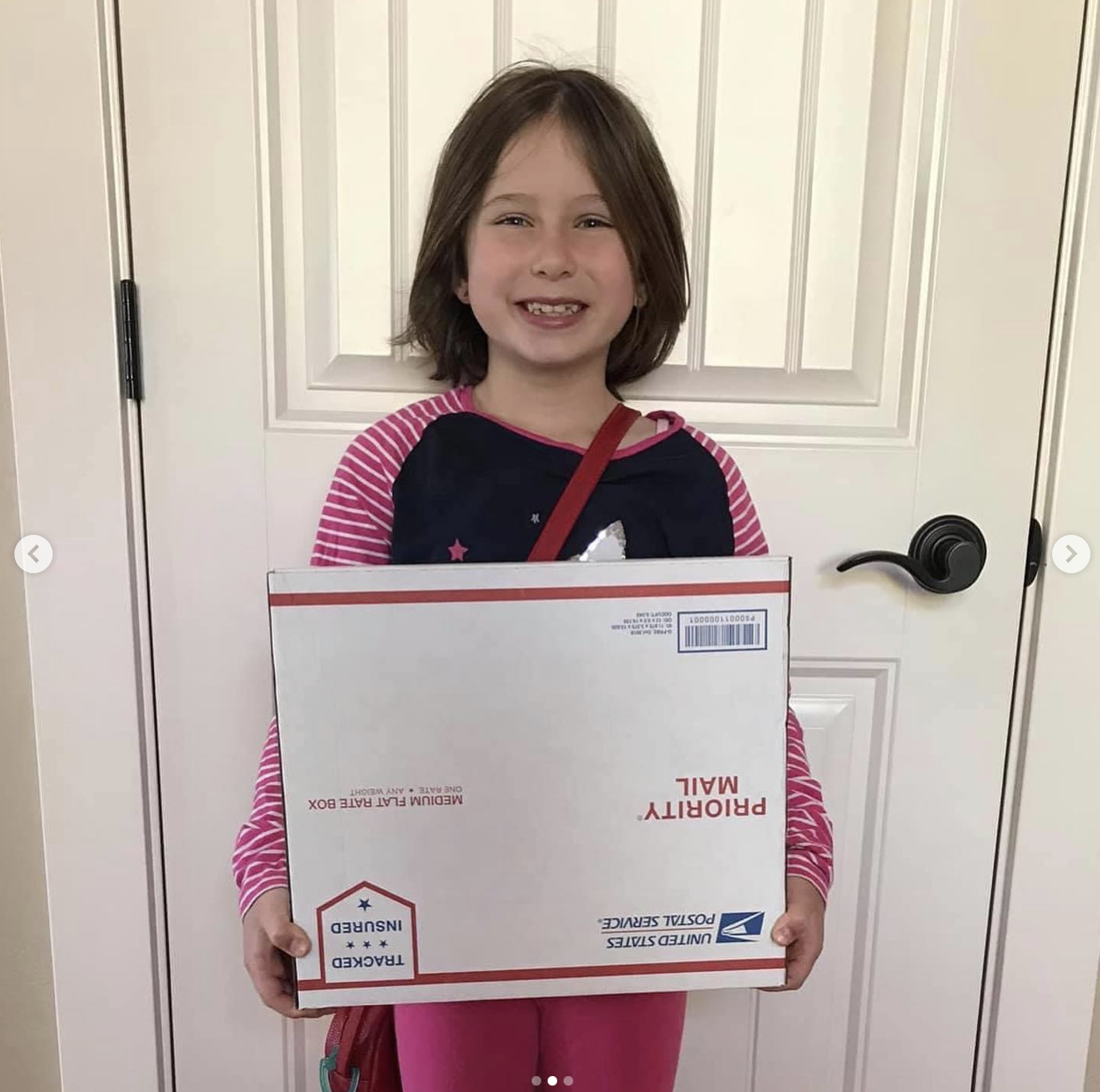How might we educate and make vaping seem less appealing to at-risk elementary students?
This team began as an iteration of a Lab51 spring 2019 Design Lab project. Students started with empathy work which included interviewing a counselor about the consequences of vaping. They also re-connected with teachers that were involved in the spring DLab implementation. To dive even deeper, the team partnered with Foothills School of Arts and Sciences and White Pine Elementary School to participate in the programs working to prevent vaping offered at those schools.
After ideating and planning, the team prototyped a low-fidelity iteration of the vaping awareness program at White Pine Elementary’s after school program. The prototype was successful with 20 students participating. The young students offered feedback that they enjoyed the program and would love to continue learning more.
The Vaping Awareness group then worked with 7th and 8th grade students from Foothills School of Arts and Sciences to implement a three-part education program focused on spreading awareness of the harms of vaping. The team adapted the awareness program to an online format to work within CDC guidelines at the beginning of the COVID-19 pandemic. The online vaping education program was designed with an emphasis on individualizing the content to students and family. This was accomplished by presenting a series of activities that the parent of the student could choose from, allowing a parent to educate their child on the information that they were comfortable with sharing.
Fast Facts
Focus: Vaping Prevention
Recipients: 7th and 8th graders
Community partner: Whitepine Elementary, Foothills School of Arts and Sciences
Number of recipients: ~20
Number of One Stone members involved in planning: 10

